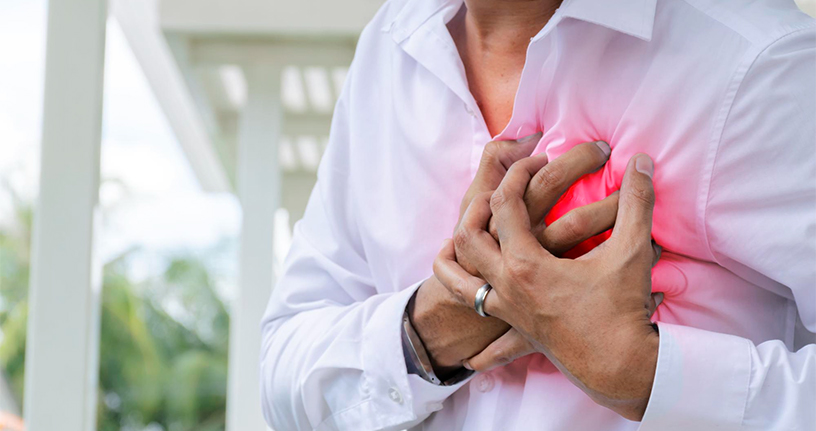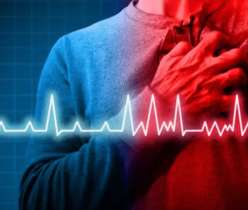The warning signs of heart attack are something that we usually ignore or remain ignorant of until and unless we experience a grave condition. If you have entered your 40s, then you need to understand the possible early warning signs of heart attack and be prepared to deal with heart attack symptoms or any untoward situations. The majority of the cases of heart attack are registered in people living or in their 40s. Considering today’s lifestyle and living conditions, you have to be careful in identifying the first signs of heart attack in order to get an effective medication at an early stage.
Early identification of heart attack warning signs helps you seek medical advice. Whether it is warning signs of heart attack in women or men, both face similar risks of the condition. You may experience some silent heart attack symptoms months before an attack. Such signs are known as prodromal symptoms. Such symptoms help predict the gravity of the condition and let you prepare to deal with the condition, whenever it happens, in a better way.
This page will discuss some of the common early signs of heart attack that one should be aware of.
Chest pain
A study has found that almost 68% of people who have suffered heart attacks have been experiencing some chest pain for the past few days or months. Usually, people feel mild pressure, squeezing, or pain in the center of the chest. Chest discomfort is one of the crucial prodromal symptoms of a heart attack in men as well as women. Patients can experience some short-term chest pain, but it can be longer in some cases and lead to a stroke or heart attack.
Some heart-related factors cause chest pain, and this condition could potentially lead to a heart attack. The possible causes for such heart-related chest pain are:
-
- Blockage of blood flow in the blood vessels connecting to the heart,
- Pericarditis (inflammation, swelling, or irritation of the tissue around the heart),
- Myocarditis (inflammation in the heart muscle that affects blood flow and causes chest pain),
- Cardiomyopathy (a form of disease that damages heart muscle).
Therefore, it becomes important to take all kinds of chest pain seriously and access medical attention to check if your heart is functioning well. Consulting a specialist (i.e., a cardiologist) is crucial to getting the right treatment to avoid a critical situation.
Chest heaviness
Chest heaviness or chest discomfort is one of the mild heart attack symptoms that patients often encounter. Almost 50% of people who have experienced heart attack complain about chest heaviness, pressure, or tightness. This condition is one of the first or early signs of heart attack.
Chest burning
If you feel a burning sensation in your chest, it could be a possible heart attack symptom that you should consider seriously. Chest burns could occur due to the consumption of spicy items, acidity, dehydration, or uncomfortable body postures while working. You must seek medical advice to understand the exact cause of the burning sensation in your chest. Remember that chest burning is also one of the early signs of heart attack, so you cannot take it lightly. At the same time, if you have acidity issues, make sure to take the prescribed medicine in a timely manner.
Heart palpitations
Heart palpitations or fast heartbeats can be a triggering factor behind a case of a heart attack. Any disturbance in the heart function can be worrisome, while heart palpitation is largely harmless. However, frequent incidents of heart palpitations could be a silent heart attack symptom that requires medication attention.
Shortness of breath
When it comes to some prominent heart attack symptoms, shortness of breath is a vital factor to consider. Breathing problems may occur with or without any chest discomfort. One could experience breathing shortness while doing a physical activity or resting. Such signs of heart attack in women as well as men require early medication attention. The exact cause of such a condition is still unknown, but you have to be always prepared to deal with heart attack symptoms shortness of breath by taking some medicines as a precaution.
Fatigue and light-headedness or dizziness
If you frequently experience fatigue and light-headedness while doing physical activity, the condition could be one of the mild heart attack symptoms that could occur sooner or later. Persistent fatigue is dangerous as it invites silent heart attack symptoms.
Cold sweat
Cold sweat is one of the common signs of a heart attack, and it is often accompanied by nausea, chest pain, and shortness of breath. Breaking out in cold sweat or clammy skin could be a sign that your body is struggling to regulate its temperature, possibly due to poor heart health.
Other critical symptoms of heart attack in men and women
There are some other indicative heart attack symptoms: arm pain, feeling faint or weak, episodes of dizziness, nausea, lack of quality sleep or insomnia, anxiety, swelling in different body parts, etc. These symptoms are associated with some risk factors that usually trigger a heart attack.
Conclusion:
Though heart disease and conditions largely vary from person to person, some common precautions can greatly help prevent this critical condition. If you have a family history of heart disease, make sure to get your heart health checked from time to time. Following a healthy lifestyle is crucial for everyone to stay fit and healthy. Heart patients should completely avoid smoking and alcohol intake. Consult a doctor to understand the best diet and exercise you should follow to keep your heart healthy.




